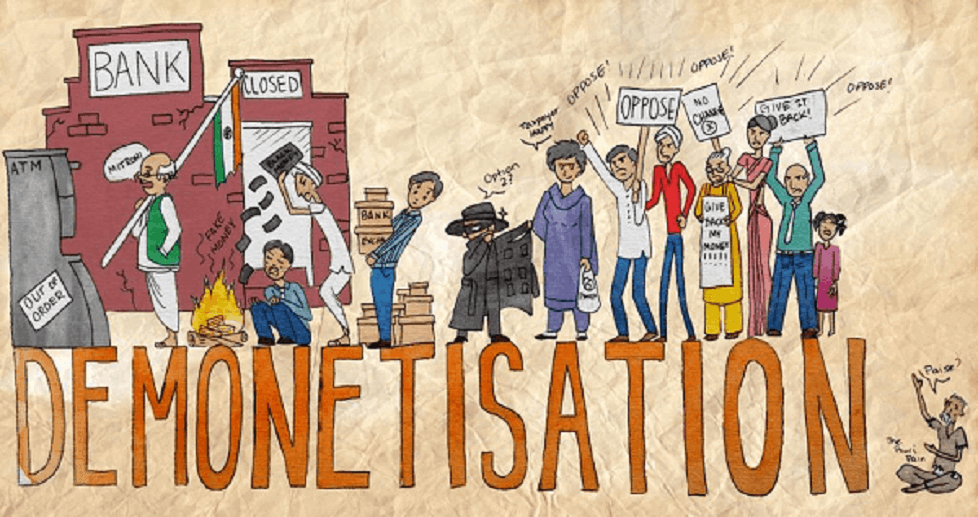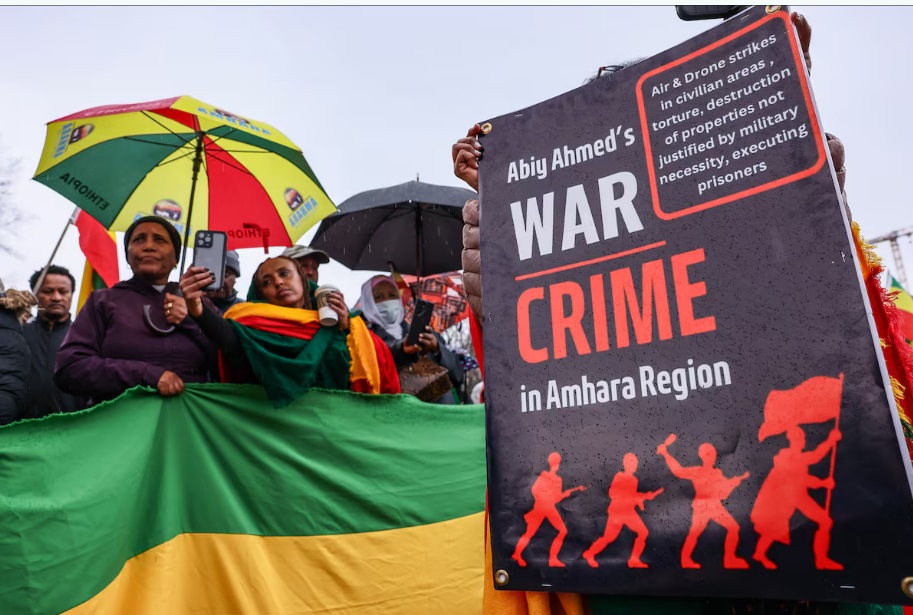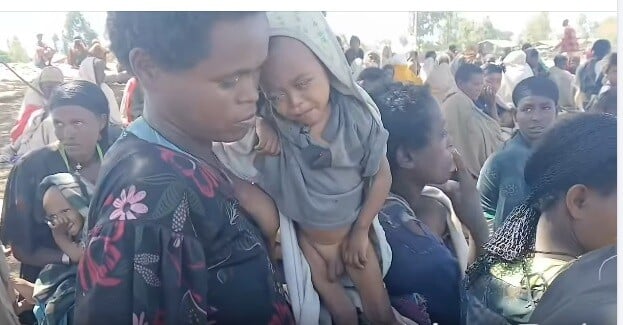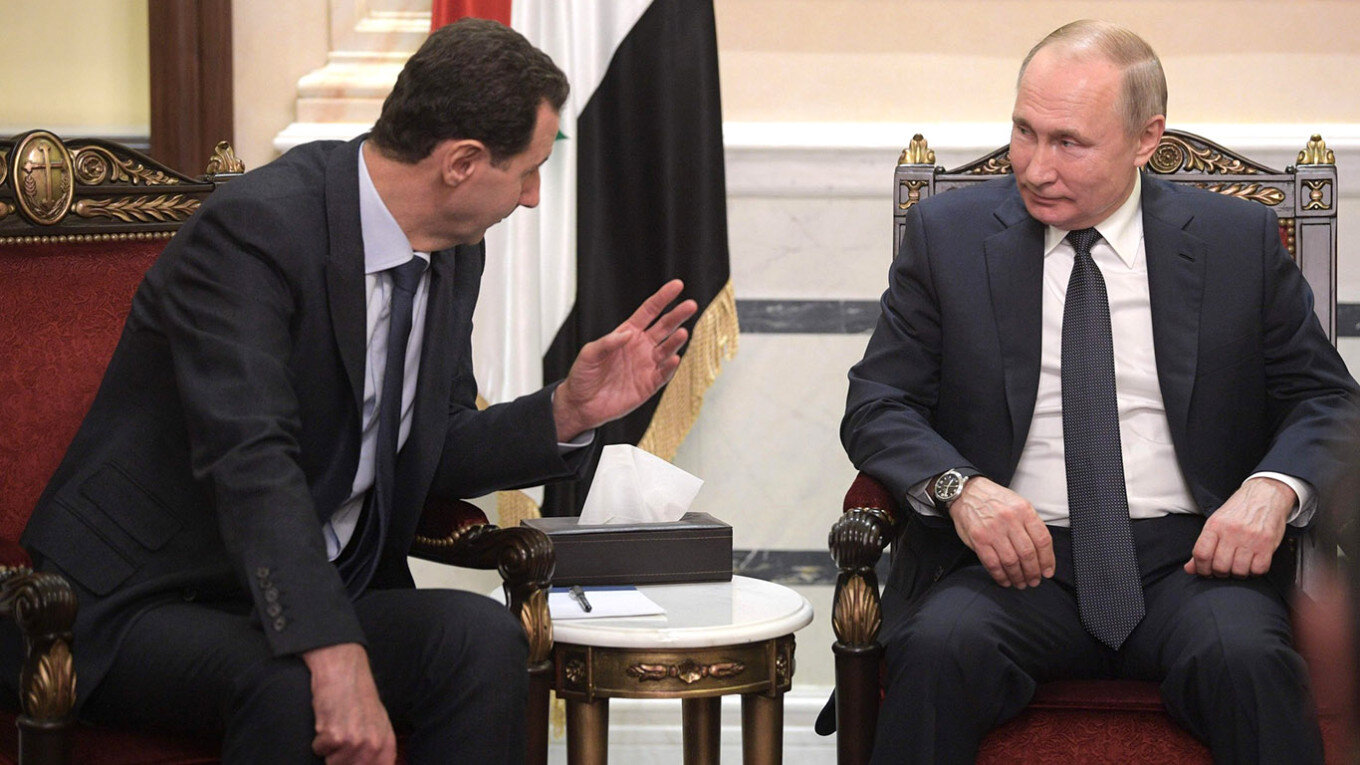Sewale Belew – (sewaleb@yahoo.com). January 30, 2023.
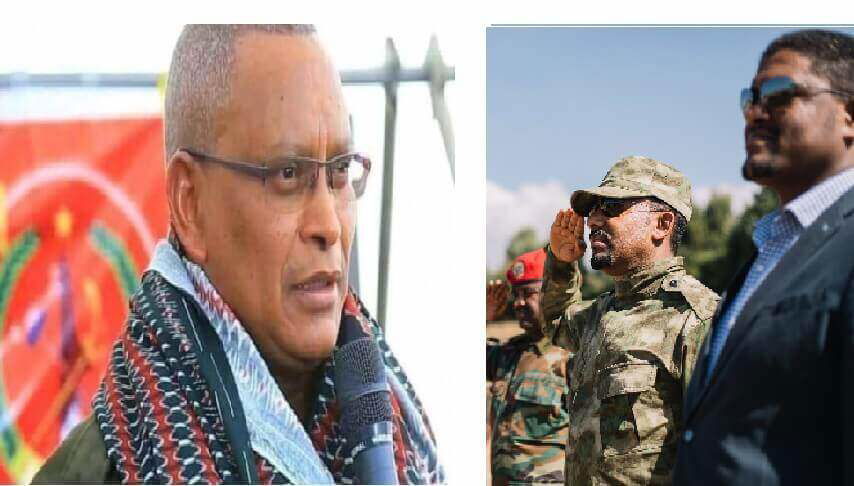 Presently, the TPLF constitution and governance system enforced in Ethiopia is clearly the enemy of Ethiopians since citizens are persistently slaughtered under its jurisdiction and policy implementation. Yet, current regime’s officials claim the constitution has no equal, for which they are determined to keep it alive without any reform done to it. Consequently, in the past four years alone, the Ethiopian public has witnessed most barbaric and horrific events than before due to indifference shown by high ranking authorities stained in corruption, nepotism and lawlessness. In a nutshell, the previous TPLF system is carried forward by its follower, the Oromo-regime on power.
Presently, the TPLF constitution and governance system enforced in Ethiopia is clearly the enemy of Ethiopians since citizens are persistently slaughtered under its jurisdiction and policy implementation. Yet, current regime’s officials claim the constitution has no equal, for which they are determined to keep it alive without any reform done to it. Consequently, in the past four years alone, the Ethiopian public has witnessed most barbaric and horrific events than before due to indifference shown by high ranking authorities stained in corruption, nepotism and lawlessness. In a nutshell, the previous TPLF system is carried forward by its follower, the Oromo-regime on power.
Coincidentally, the Oromo Prosperity Party, which has appointed itself to the highest government position, is vigorously promoting the same TPLF constitution and is moving Ethiopia and its 120 million people from the previous weak legal system down to the current anarchic scene everywhere in the country. The sad thing about this is that PM Abiy, in his recent meeting with university educators insisted that they should be ready to accept and endure ‘the new normal’ political market reality as is.
From 2020 until recently, TPLF and its foreign allies were enforcing political unrest by destroying northern Ethiopia, particularly areas situated within the Amhara and Afar regions and in neighboring Eritrea. At the same time, the OLF-Shene, which most of the Oromo authorities of the Prosperity Party secretly support, is continuing to cause colossal massacres and destruction in Wellega and other parts of Ethiopia.
Party authority and rebellion lenses by which political marketplace can be seen
In principle, political marketplace denotes a system of governance where monetized transactional politics have become efficient. Accordingly, party politics is run on the basis of personal transactions in which political loyalties and services are sold to the highest bidder in a competitive manner. In such contexts, the role of ‘institutions’ or that of the ‘rule of law’ is considered as secondary. For example, a party leader bargains with members of the political elite over how much he needs to pay them — in cash, or in access to other lucrative resources (such as contracts) —in return for their support. The elite can exert pressure on him using their ability to mobilize votes, turn out crowds, or inflict damaging violence.
The political marketplace also refers to a way of analyzing how power operates within party partisan political systems – it can help us understand how those countries actually function and how they are likely to respond to external interventions and other political and economic changes. The political marketplace is a fashionable system of governance, characterized by pervasive monetized patronage, in the form of exchange of political loyalty or cooperation for payment. The countries where political marketplace occurs usually share three major features, namely (a) the dominance of inter-personal political bargaining over formal rules and procedures, (b) persistent rent-seeking by members of the political and business elite, and (c) assimilation into the ongoing global monetarized backing order. The political marketplace is not a transitional or outdated system, but a flexible and dynamic governance way. While identity indicators are becoming more prominent features of ethnic conflicts, sectarian authorities like religious leaders have much reduced influence and are persistently losing their status amidst such turbulent political market place.
Management of the political budget is the only most vital political marketing skill for a political entrepreneur. As such, the dominant and forceful activity in the political management of a political marketplace is the link existing between the political budget allocated to a given sector or region and the price of loyalty it obtains in return. In here, political budget refers to the funds available to the political party leader for unrestricted spending on safeguarding the loyalty of its party members (or the political elites and technocrats).
The political marketplace arena in today’s Ethiopia
Currently, state-building is becoming much harder, not easier, in Ethiopia. Despite a collective demand for democracy and a capable and unified Ethiopian state, institutionalized peace building and maintenance has become much remote. As always, the country remains ever-more entrenched as a consistent recipient of global support. The political marketplace governance system in today’s Ethiopia is manifested with dispersed control over the instruments of coercion; mainly based on federal versus regional state control mechanisms. Instead of discussion and reaching compromise, political bargaining is usually conducted using violence or the threat of violence against the competitive groups (be it ethnic or religious-based, or resource use based interests).
Consequently, just as it was happening during the TPLF era, so also the current government led by the Prosperity Party is mired in political corruption, nepotism, and lawlessness. In principle, political corruption undermines institutions and the rule of law. It creates attitude of arrogance and government’s indifference to accountability and responsibility of keeping peace and orderliness. In other words, political corruption makes the rule of law accountability and responsibility of institutions zero.
On its part, in its attempt to re-take government power from the hands the Prosperity Party leadership, the choice TPLF had in 2020 was staging a military mutiny or rebellion, and attract the public attention by marketing its intents and willpower for “Greater Tigray”. So, during its two-year-long skirmishes against the Prosperity Party, it opted to strike up a round of bargaining by way of conducting a series of regional violence in Tigray’s vicinities and ultimately exerting pressure to opt for talking to reach a globally recognized peace. The value of nearly a million human lives taken during the skirmishes remains openly at stake between the two contesting groups who fought to retake or maintain power from one another. At the end of the day, the skirmishes were settled through a payroll of reaching a peace deal; with a likely promise to provide some sort of promotion to the TPLF-leadership and to assign its fighters to join the national army and become part of the army payroll system.
In similar fashion, OLF-Shene has recently put its bargaining demands and preconditions to the prosperity party régime asking for a negotiated peace settlement. In essence, there are two governments visibly functioning in the country: (a) the federal government managing the TPLF established constitution for its own Oromia interests and operating in the open; and (b) the OLF-Shene, operating as an outlaw Oromo government, a clandestine ethnically organized outlaw group preparing itself to take control over the national resources under its combatants’ power by hook or crook.
Meanwhile, instead of saving the lives of innocent citizens living in rural farming communities, the Special Force of the Oromo region has become a part and parcel of the OLF-Shene massacre of innocent Ethiopians being sacrificed to strike their most desired deal. To the public’s dismay, instead of giving instructions to take strong military action to maintain the peace and orderliness in the country, PM Abiy recently made a cynical remark stating: “there are two Shene groups – the Oromo-Shene and the Amhara-Shene. In recent days, this comment added fuel to the ongoing OLF-Shene fire in parts of the country and made the dangerous local situations even worse. The latest OLF-Shene attacks during the last few days for the third time in Ataye, Shewa Robbiet and in the vicinities of the main highway taking to Dessie are cases in point for lack of peace and orderliness in the region. Also it has created a splinter group within the Ethiopian Orthodox Church administration and its functions.
Especially regarding the violence and kidnapping of the Amhara people within Oromia region, the federal government (led by the former OPDO and by the current Prosperity Party) did not show keen interest to take any significant actions to stop the OLF-Shene abuse committed against the poor farming community in parts or Oromia or in neighboring Amhara region.
Actually, Arsi, Bale, Shew, and Wollega are not the only parts of the country where OLF-Shene is freely roaming around and attacking innocent residents of the farming communities. Members of OLF-Shene, are clandestinely affiliated to the Oromia regional Police Force and enjoy attacking rural people as they see it fit for their own vested interests. Whenever the Oromia Police force sees the public carrying the good-old Green-Yellow-Red Flag of Ethiopia that is when its anger boils to its zenith and it starts to manifest its hatred and tribal enmity openly.
Recently, when the Orthodox Christians were celebrating Asterio Maryam’s annual coronation, the Oromia Regional Police, present at the church ground, provoked tension and havoc against the church followers by raising some interrogations like: Why are you carrying the old flag? Why are you wearing clothes with green-yellow-red patterns? Without due time to converse on the issues, the Oromia Police Force resumed beating people harshly with its sticks. The stretch to which the police went to terrorize the public attending the church ceremonies was incredible. The Chaos gave impression as though the Oromia Police was chaperoning the OLF-Shene election. It even raises the question why the leadership in Oromia region deploy the police force?
The crisis faced by the education Sector
The long-term continuing apartheid political market place of the TPLF/OLF/ has clearly managed to remove the principled meritocracy system and replaced it with blatant nepotism, corruption and anarchy to flourish in Ethiopia. As the Minister of Education in Ethiopia, Professor Birhanu Nega recently alleged, “… the Ethiopian School-Leaving Certificate Examination or the education system that leads to the university exam level has been declining and deteriorating for a long time now. Generally, this education system has become a weak process of manpower making, a system that gives “degrees” to young souls en-masse without any quality standards to prepare for qualified work force. So, as a country, we have failed in education.” I agree with his remarks completely.
According to the findings exposed by Professor Berhanu Nega, out of 896,520 students who took the required tests for the 2022 college entrance standardized test, only 29,909 (3.3 percent) scored a passing score, i.e., “50/100” or higher results. These 3.3 percent students were deemed eligible to enter college as freshmen. But 98 percent of the students who took the test have failed. Although this result is quite shocking, such outcome was long anticipated due to the poor educational standard existing in Ethiopia. In a country where one eyed person is the king, and where the high-ranking government positions are filled with politically loyal cadres of the ruling party, political market governance is obvious to turn out to be poorly managed and undermined progressively. In fact, eventually, it degenerates.
The crisis in the socio-economic sectors in Ethiopia
In the last 5 years alone, the OPDO’s willingness to carry forward the TPLF-apartheid regime’s constitution in Ethiopia is showing the same trend in all social and economic sectors, where political actors have little trust in one another and no trust at all in the rule of law. It is worth mentioning an example here of the current government’s attempt to usurp the administrative system of the Ethiopian Orthodox Tewahedo Church which is showing a dangerous trend that is futile.
In essence, the OPDO/OLF/ regime, which replaced the TPLF in 2018, aims to make its political market place transactions at the cost of exerting TPLF’s designated ethnic apartheid policy to realize rent-seeking results of its racially led marketplace bargaining law. In this regard, as long as the medieval apartheid regime remains in power, we see no hope for a strong and united Ethiopia to move forward.
It is amazing to observe what happens on daily bases in a country where there is supposed to be a government. In recent times, church ministers and bishops have been kidnapped in Addis Ababa and Jimma. To mention one incident, travelers from the Amhara region are being harassed by ignorant, hateful teenagers who daydream about establishing an Oromo country, preventing them from entering Addis Ababa for their personal affairs and business ventures.
Tens of thousands of people around Addis Ababa were forced to watch their homes destroyed and were completely displaced from the area. The situation in Addis Ababa is similar to the situation in neighboring Mogadishu. This is an indication that the government has not taken full responsibility to prevent violence and abuse against Ethiopian citizens. This reminds us of what a Catholic man during the 2nd World War said: “When the Nazis in Germany attacked Jews, socialists and communists in turn, I said, ‘I don’t care.’ But in the end, I was alone when they came to attack me.” Therefore, it is time to advise the governing body responsible for controlling the situation, not to let the bitter truth about the ethnic conflict bring the country to ruins.
Tips learned
Globally, on the one hand, in recent decades, regardless of the political system of government each nation follows, countries that have achieved social progress in their development attempts (for instance, China, Malaysia, Singapore, South Korea, etc.) have shown positive results due to the meritocracy management systems they implemented.
On the other hand, to date, for the sake of personal political satisfaction, the narrow nationalist groups in Ethiopia (TPLF and OLF), have amused and entertained themselves by the grandeur of ethnic politics. To our dismay, they could not even ask pardon about their eye-popping procedural abuses that they inflicted on the Ethiopian society in the last half a century or so.


